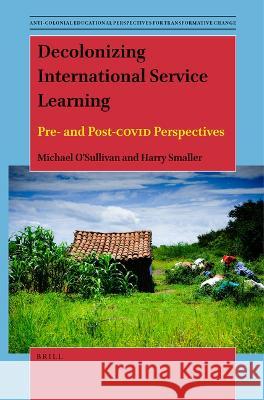Decolonizing International Service Learning: Pre- And Post-Covid Perspectives » książka
Decolonizing International Service Learning: Pre- And Post-Covid Perspectives
ISBN-13: 9789004547490 / Angielski
Decolonizing International Service Learning: Pre- And Post-Covid Perspectives
ISBN-13: 9789004547490 / Angielski
(netto: 493,73 VAT: 5%)
Najniższa cena z 30 dni: 498,71
ok. 22 dni roboczych.
Darmowa dostawa!
Despite the existence of a robust literature reviewed throughout this text which critiques salvationist models of international Service Learning (ISL), including literature that advocates deeply reciprocal relationships between global northern sending organizations and global southern host organizations, neocolonial models of ISL remain the dominant practice. The authors pose an ISL model that puts north/south reciprocity at the entre of ISL planning and implementation – based on their research and engagement in multiple ISL experiences and, importantly, from the input of representatives of global southern host organizations at a south-south gathering (encuentro). This constitutes a rupture with the current model that views the host village as an extension of a group leader’s classroom; rather, it makes the host community a space for difficult learning based on what hosts want their visitors to take home. The interruptions of ISL travel represented by COVID constituted an opportunity to consider alternative models; despite the awareness of environmental impacts of travel, it is likely that ISL trips will resume. It is, therefore, increasingly important that the ISL experience becomes a means of generating solidarity rather than the reinforcement of neocolonial “helping imperatives” associated with the traditional model.











